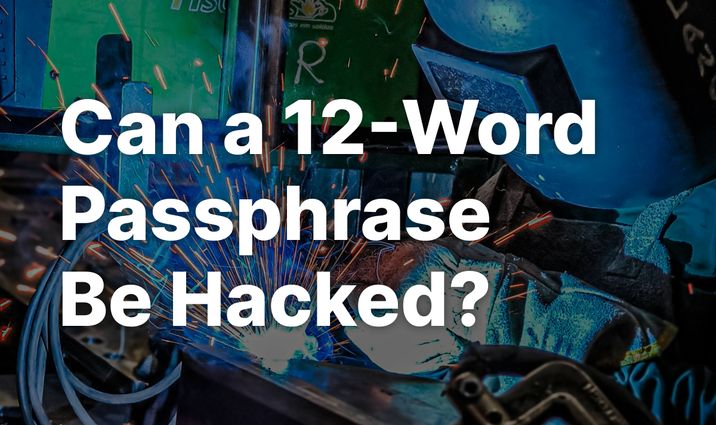Can a 12-Word Passphrase Be Hacked?

A 12-word passphrase is a critical security feature in cryptocurrency wallets such as Coin Wallet, Trust Wallet, and other self-custodial wallets. But just how secure is it against hacking? Let's break it down.
Understanding a 12-Word Passphrase
A 12-word passphrase, also known as a mnemonic seed phrase or recovery phrase, is generated using the BIP-39 standard, which converts cryptographic entropy into human-readable words from a list of 2048 possible choices. This phrase provides access to private keys, making it crucial to security.
How Hard Is It to Crack?
The total number of possible 12-word combinations is enormous:
2048 12 ≈ 2 132 ≈ 5.4 × 10...(37 zeros)...0
To put this into perspective:
- Even if every man on the Earth has a supercomputer, which could check a trillion guesses per second, it would still take more than 100 million years to check 1% of all possible 12-word passphrases.
- Quantum computing may eventually pose a risk, but currently, no quantum machine is capable of breaking 128-bit entropy in a feasible timeframe.
Potential Weaknesses
While mathematically secure, a 12-word passphrase can still be compromised through:
- Bad memory – Users just forget where they wrote down the 12-word passphrase.
- Phishing attacks – Users unknowingly provide their passphrase to attackers via fraudulent websites or scams.
- Keyloggers and malware – If a passphrase is entered on an infected device, an attacker can steal it.
- Weak implementations – If a wallet provider does not correctly randomize word selection, it could reduce security.
Should You Use More Than 12 Words?
A 12-word passphrase provides 128 bits of entropy, which is generally considered secure. However, a 24-word phrase (256-bit entropy) is even more robust, making brute-force attacks virtually impossible.
Best Practices for Security
- Never share your passphrase – No legitimate service will ask for it.
- Store it offline – Write it on paper or use a metal backup instead of storing it digitally.
- Use an incognito window – If you use a web wallet, use it in an incognito window. This approach eliminates third-party browser extensions that may be installed on your browser to steal your 12-word passphrase and replace the wallet's clipboard data.
- Make sure your device is virus-free – Before entering the 12-word passphrase into your crypto wallet, make sure that your device is virus-free and doesn't have any malware installed on it. Cryptocurrency theft is a delicious bite for such malware.
Conclusion
A 12-word passphrase is extremely secure against brute-force attacks, but human errors and phishing scams remain threats. Practicing good security hygiene is the best way to ensure that your digital assets remain safe.